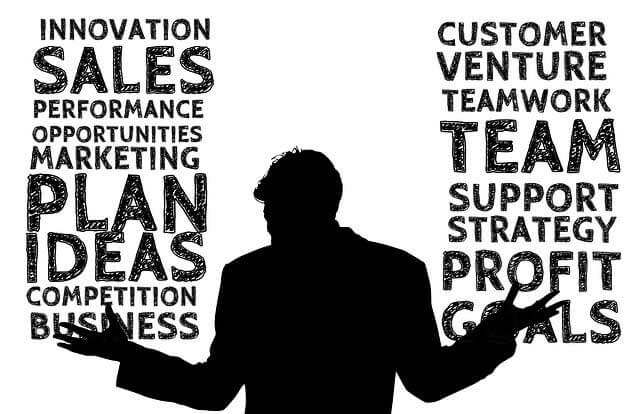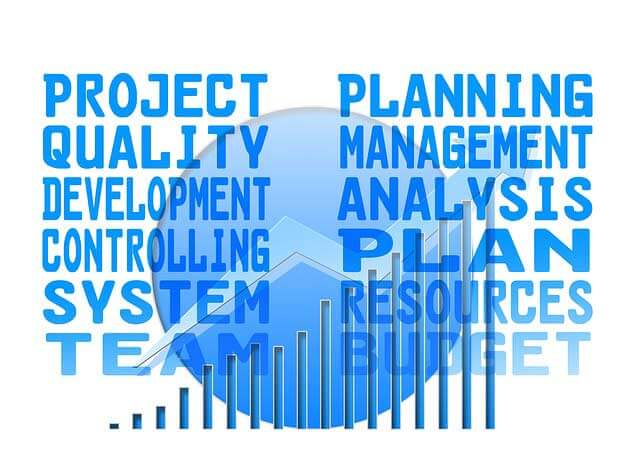CRM vs PM Software
Our company is up and running, and we have everything on board. Next, we will search the market for the best CRM and PM software that aligns with our business model. Given the many options available, the question we need to answer is what kind of software setup we will choose. You can have an all-in-one solution, plugins, or the CRM and PM software as separate entities.
Choosing between CRM and PM software can be complex due to the available options, posing a challenge in decision-making. CRM purchasers are quite different from people who can identify a great PM software, going both ways. Revolving around this dilemma, many articles and guides mostly package the two distinctive CRM and PM software together, with one or the other software treated as an add-on. But is this the right way to go about it?
This article will provide insights into CRM vs PM software to help you make an informed decision. It will enable you to make better decisions for your sales team and project managers, maximizing your company’s software benefits.
What Does CRM Software Do?
CRM software manages customer data and interactions for businesses. CRM software can access various types of business data, including sales strategies, customer data, and interactions. It automates all sales processes, procedures, marketing, and customer care support while managing employee and vendor relationships.
CRM software must be fully equipped to align with business goals and objectives for customer sales and marketing. This software needs to be adaptable to the increasing needs and demands of businesses and customers. They must be scalable enough to meet these demands and grow alongside the business. An efficient CRM software would consist of the following:
- Analytical back-end engine
- Streamlined operations
- Predictive analytics
- Provision for personalized customer service (based on customer history and prior seamless interactions)
With the current business standards and optimization on the global stage, these are 9 must-have features in your CRM software:
Integrated Analytics
Data analysis is important for the sales team to determine the next step within the business. Having dedicated and integrated analytics software to declutter and make sense of the data seems to be the best thing that can happen to the sales analysis team.
Master Data Management
As a growing business, there will surely be a tremendous influx of data into the CRM system that needs careful segregation and compartmentalization.
Remote Task Access
In this age of technology and wireless progression, it’s beneficial for software to be accessed remotely, in the case of CRM software, from client sites, customer sites, trade fairs, and more. This initiative can even facilitate the increasing trends of work-from-home sales agents.
Mobile Access
For constant updates and undeterred business information at your palm, mobile access is the next-gen for software apps to pick up from.
Simple Interface and User-friendly
It’s extremely important for individuals not from a technical background to be fluent in using CRM software. These sales and marketing employees can reap the benefits of the CRM software if the interface is simple to deal with and will conform to their needs in the most user-friendly manner.
Strong Multichannel Support
Customers must reach the business through many preferred channels and modes to get their word across to the organization. This input through varied channels into the CRM software can benefit all different types of analysis and campaigns.
Marketing Campaign Management
A dedicated module within the CRM software for marketing can be the portal for your business to get the best from the customer demands and need identification through the CRM software and many such benefits.
Flexibility and Adaptability
As mentioned previously, flexibility and the software’s adaptability can take the business to a great head-start in the race between businesses.
Follow-up Tracking and Lead Generation Capabilities
Customer service is all about follow-ups and lead generation for the sales team to pitch a great turnaround for the business. This would be your greatest must-have.
What Does a PM Software Do?
Based on the sophistication levied on Project Management (PM) software, it can be called an assistant to a project manager. PM software is designed to build up a capacity to plan, organize, and perfectly manage a project life cycle to ensure the successful completion of a project. With the term of a project life cycle, a project undergoes 5 stages that eventually come down to completion. During the run of these 5 stages, we see that the project manager carefully and meticulously manages all the aspects of the project.
Now, in any kind of business, projects will vary dramatically in size. Keeping track of these varied projects would require the needed automation provided by the software. This software cannot be run-of-the-mill but is highly customized according to the organization’s project management policies and approach. This way, the projects can have a certain standard within the organization and, simultaneously, will differ from those in other organizations.
5 Stages of PM Software
- Initiating
- Planning
- Executing
- Maintaining and Controlling
- Closing
Within these stages are the different aspects of project management that come to the forefront as the project manager maneuvers toward completion. These areas include:
- Scope management
- Procurement management
- Forecasting
- Cost management
- Budget management
- Quality management
- Planning
- Schedule management
- Integration management
- Resource allocation and assignment
- Decision-making and report management
- Documentation
- Contract management
- Information management
This PM software would stay in effect for as long as the project thrives. On completion of the project, the PM software would latch onto the next project. With increasing levels of sophistication, PM software has been tuned to accommodate multiple projects simultaneously and can be accessed through different modes and types of access. These include (as mentioned by the Wikipedia page):
- Desktop software
- Web-based software
- Home-based software
- Single-user software
- Collaboration software
- Visual software
Apart from these, the features that you need to be looking at when purchasing PM software is to check out are mentioned as follows:
- Complete collaboration solutions for clients and staff
- Multi-user log-in facilities
- Community discussion forum
- File sharing
- Project categorization
- Project delegation
- Automatic e-mail notifications
- Progress/Gantt charts
- Milestone achievement indicator
- Vendor management module
- Task management
- Calendar
- Deadline reminders
- Assignment features
- User-friendly
- Simplistic UI
- Clear and decluttered dashboards
- Tagging facilities
Similarities between CRM vs PM Software
Amidst this software being put to work for different business sections to attain different goals, they share a few qualities or demographics. These points of similarities can be the joint part that you can decide on when you decide as important as whether you must purchase an all-in-one solution for the business or keep the CRM vs PM software separate.
We will now look at the various similar qualities that are showcased by both the CRM vs PM software:
Schedule Management and Time Tracking
Both software is intelligent, time-based software that records timelines and activities based on those timelines and deadlines set. This similarity is beneficial, as is the case with both these software. It proves to be an important aspect that governs the project task time and schedules the project’s proceeding to make timely progress or the turnaround time slated for the customer service team to reply to consumer/customer queries through various media.
E-mail Integration
With correspondence being done completely via e-mails, it becomes necessary for these CRM and PM software to have e-mail integrations as well. It comes in handy when dealing with the various stages of the project life cycle, as it does with customer requests through the mail. This similarity between CRM vs PM software can indeed form one common bridge between the two software and enable third-party clients and customers to be notified about the progress of their projects/requests.
Project Management or Project Planning
You will undoubtedly find traces of project management ideologies and principles in everything you take up, whether at work or home. Even a simple to-do list can be considered a subset of the project management paradigm. Out of the simplistic idea of staying optimally organized, project management and its principles seem embedded into every work we do. Within the CRM system, it’s no different. So, there you go, another CRM vs PM software similarity bagged!
Mobile Integration
With ever-increasing mobility regarding technology, we’re looking at both CRM and PM software incorporating their software into mobile apps for faster and better connectivity and effective use.
Organizing Contact Data
Both the CRM and PM software look towards organizing organizational data that might come from the same pool to enable smooth functioning and data processing for their department.
Client/Customer/Vendor Management
The CRM vs PM software is very well adapted to handle queries from outside the organization, and processing these external queries is equally important.
CRM vs PM Software
Now that we’ve seen the reasons you could club your CRM vs PM software together let’s dive into the many reasons that urge you to keep them separate entities. We’re looking at the differences between CRM vs PM software.
Firstly, the CRM vs PM software was specifically designed for two different purposes that set it apart. Their contribution to the business is also distinctively different from each other.
While CRM software manages customer data and the company’s relationship with them, its functionality lies mostly external to the business. CRM software focuses more on a long-term goal undertaken by the business.
On the other hand, PM software is a dedicated service for projects running internally within the business to expand the performance of the business. These projects are in response to achieving business goals and objectives in a systematic manner and approach. Unlike CRM software, PM software looks at deliverables, quality, budget, and scope constraints.
The PM software looks even at external factors within a business as it aims to improve business performance from all spheres. PM software is deployed for projects and is used on a per-project basis. It’s a short-term investment.
What Should You Do?
As mentioned at the start of this article, you have 3 very efficient yet distinctive options when purchasing CRM vs PM software. They are as follows:
- The all-in-one software option would cost you less and can come in all shapes and sizes, but guaranteeing quality is unfortunately not something that comes with the packaging.
- Having separate software for these functionalities can be beneficial when you look at it from a long-term and short-term perspective CRM and PM software contains but can be expensive for your business, especially if you’re a new company.
- A plugin is always a compromise to the systems’ integrity and needs to be dealt with with a company-specific approach. If you want to bring in a PM software twist to your CRM software system, a plugin will do just fine, but if the work of the PM plugin goes beyond its restrictions, it makes no sense. Standing true vice-versa as well.
Recommended Articles
This is a guide to CRM vs PM Software. Here we have discussed the basic concept, features, stages, and Similarities. You may look at the following articles to learn more –




